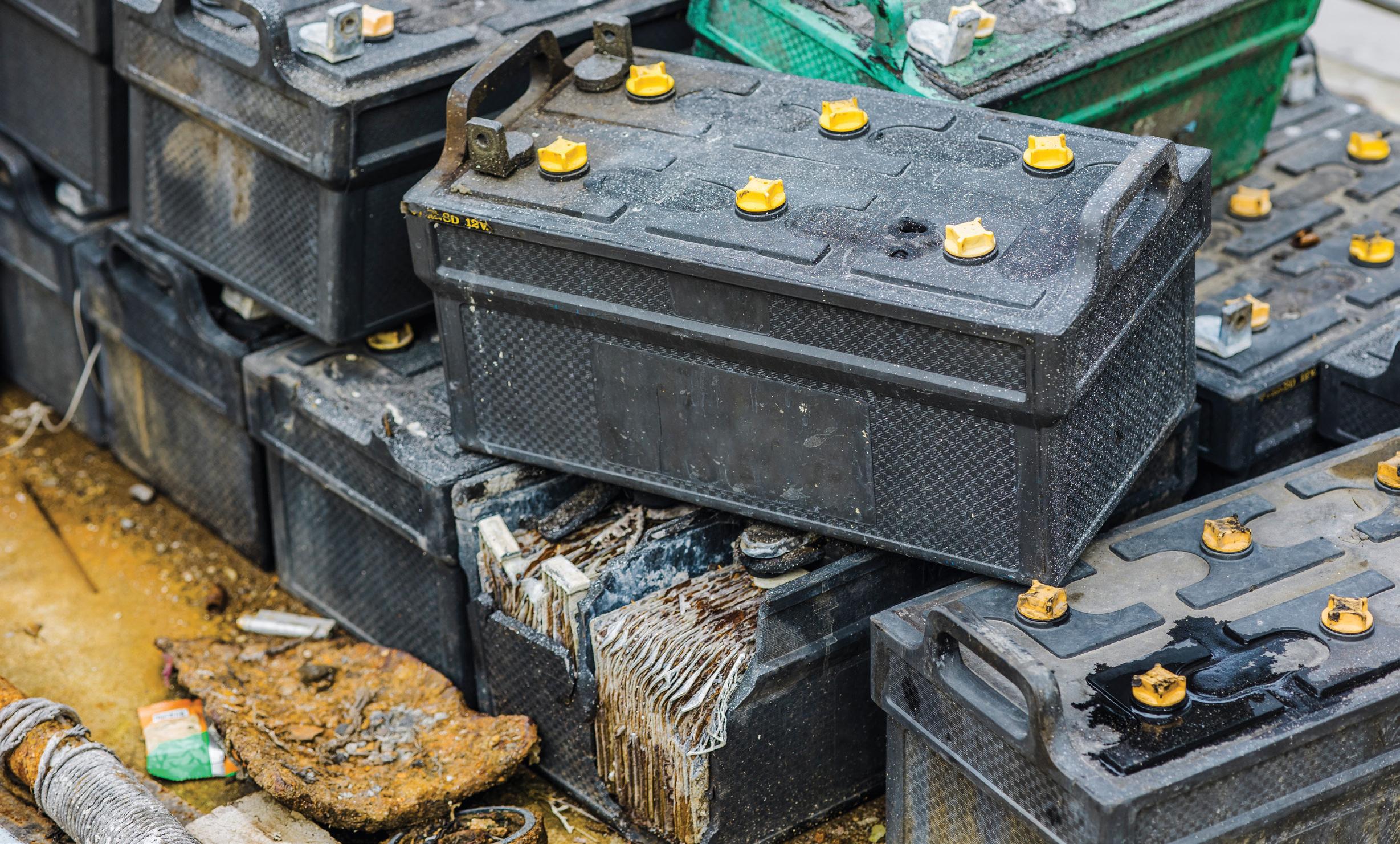Intentar ORO - Gratis
How battery waste recovery hubs can redefine sustainability in Tier 2 and Tier 3 cities
Manufacturing Today
|August 2025
Tier 2 and Tier 3 cities can power India's battery circular economy by hosting decentralised recovery hubs, enabling sustainable recycling, job creation, resource security, and reducing environmental impact across the value chain.

Batteries are at the epicentre of modern life. Whether it is portable electric devices or vehicles, batteries are central to their functioning and ours, and the convenience they provide results in the consequence of battery waste. As India moves towards a circular economy, the efficient and sustainable management of this waste stream becomes critical. Waste management in India is struggling in metro cities due to high volumes and informal systems operating at scale, while smaller cities lack adequate infrastructure and informal recycling systems. The high and accelerating rates of battery waste, however, can be better managed through a decentralised solution. The cities of Tier 2 and Tier 3 serve as local economic and logistical hubs, offering potential for establishing recovery hubs. Recovery hubs are facilities designed to collect, sort, disassemble, and pre-process used batteries before recycling. These may range from simple aggregation and sorting points to semi-automated dismantling and material recovery plants.
The problem of battery waste & recovery
India wants to become a hub of EV production and renewable energy storage. The demand for Li-ion batteries is estimated to reach 115 GWh by 2030, driven by these electrification goals, and the volume for recycling is projected to be 128 GWh by 2030. This projection suggests that a robust recycling infrastructure is urgently required. A majority of the battery waste, particularly that of consumer electronics, is currently collected and managed by the informal sector. The informal sector also does some of the segregation and separation post-collection, and their processes are usually not environmentally friendly.
Esta historia es de la edición August 2025 de Manufacturing Today.
Suscríbete a Magzter GOLD para acceder a miles de historias premium seleccionadas y a más de 9000 revistas y periódicos.
¿Ya eres suscriptor? Iniciar sesión
MÁS HISTORIAS DE Manufacturing Today

Manufacturing Today
Designed in India, for India – How indigenous EV engineering meets local market needs
How indigenous EV engineering in India is shaping sustainable mobility, driving logistics growth and powering global innovation.
4 mins
November 2025

Manufacturing Today
The smart coolant revolution
How nanofluids and IoT are forging the next generation of industrial coolants
4 mins
November 2025

Manufacturing Today
Smart flooring: The hidden backbone of India's new-age industrial parks
Smart, durable, and automation-ready flooring is emerging as the foundation of India's next-generation industrial and warehousing infrastructure.
3 mins
November 2025

Manufacturing Today
ABB India installs advanced automation in new drive line to support
ABB India at Peenya expands local production of variable-speed drives by 25 % with automation and custom delivery to meet industrial demand.
1 min
November 2025

Manufacturing Today
Vertiv ushers in new leadership: Paul Ryan to lead EMEA operations
Patrick Grainey has been appointed as acting chief procurement officer, reporting to Albertazzi.
1 min
November 2025

Manufacturing Today
BC Jindal Group to build Rs 15,000 cr steel plant in Odisha
The first phase aims for an annual capacity of 9.6 lakh tonnes by 2027.
1 min
November 2025

Manufacturing Today
Sanofi India appoints Deepak Arora as Managing Director
Sanofi is involved in conducting clinical trials in India to expedite access to its global innovations.
1 mins
November 2025

Manufacturing Today
Kia Corporation renews-21year global partnership with Rafael Nadal
The partnership began in 2004 when Kia Spain sponsored Nadal.
1 mins
November 2025

Manufacturing Today
From Inspection to Insight
The convergence of in-line metrology and digital twin technologies is transforming manufacturing from reactive quality checks to intelligent, data-driven, and self-optimising production systems.
5 mins
November 2025

Manufacturing Today
From supporting role to centre stage
India's tier-2 cities are emerging as the new manufacturing growth engines. Can they deliver the $5 trillion dream?
9 mins
November 2025
Listen
Translate
Change font size

